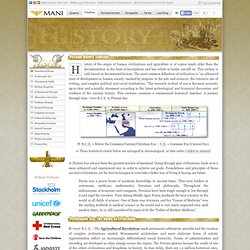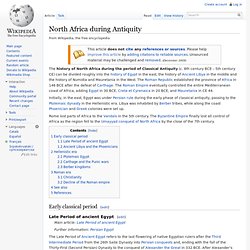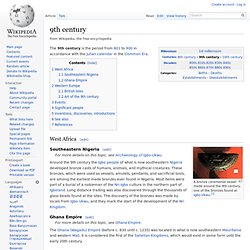

Ma'at, Goddess of Truth, Balance, Order. Ma'at, Symbol of Order Ma'at, Goddess of Truth, Balance, Order... Ma'at, unlike Hathor and Nephthys, seemed to be more of a concept than an actual goddess. Her name, literally, meant 'truth' in Egyptian. She was truth, order, balance and justice personified. She was harmony, she was what was right, she was what things should be. It was thought that if Ma'at didn't exist, the universe would become chaos, once again! For the Egyptian believed that the universe was above everything else an ordered and rational place. Because of Ma'at, the Egyptians knew that the universe, that everything in the universe, worked on a pattern, just as, later on, the Greeks called the underlying order of the universe logos (meaning, order, pattern). "In the beginning was the logos*, and the logos* was with God and the logos* was God. " - John 1:1 * Logos was the 'Word', another name for Jesus.
Egypt, then, was seen to be nothing without Ma'at. A brief History Timeline of Persia all from the origin of human civilizations, agriculture and dynasties from 7000 B.C.E. until the present day of Iran. History of the origin of human civilizations and agriculture is of course much older than the documentation in the form of inscriptions and bas-reliefs or tombs can tell us.

This section is only based on documented history. The most common definition of civilization is “an advanced state of development in human society, marked by progress in the arts and sciences, the extensive use of writing, and complex political and social institutions.” The research in front of you is the most accurate, up-to-date and scientific document according to the latest archeological and historical discoveries and evidence of the ancient history.
This sections contains a summarized historical timeline: A journey through time: 7000 B.C.E. to Present day. B.C.E. = Before the Common/Current/Christian Era | C.E. = Common Era (Current Era). These historical events below are arranged in chronological, or date order: (oldest to newest) Ancient Ethiopia or Kush. Ancient Ethiopia or Kush Etymology The term "Ethiopia" was first used by Ancient Greek writers in reference to the east-central African kingdom that they believed to be not only culturally and ethnically linked to ancient "Egypt" (Kemet), but the source of such civilization as well.

Contrary to popular belief, the term was not exclusive to the landlocked modern country of Ethiopia. According to early Greek writers, Ethiopia was an empire originally situated between Ta-Seti in Lower Kemet and the confluence of the White and Blue Niles. Chronology of Medieval Islam, 600 - 900 CE. North Africa during Antiquity. Initially, in the east, Egypt was under Persian rule during the early phase of classical antiquity, passing to the Ptolemaic dynasty in the Hellenistic era.

Libya was inhabited by Berber tribes, while along the coast Phoenician and Greek colonies were set up. Rome lost parts of Africa to the Vandals in the 5th century. The Byzantine Empire finally lost all control of Africa as the region fell to the Umayyad conquest of North Africa by the close of the 7th century. Early classical period[edit] Late Period of ancient Egypt[edit] 9th century. The 9th century is the period from 801 to 900 in accordance with the Julian calendar in the Common Era.

West Africa[edit] A bronze ceremonial vessel made around the 9th century, one of the bronzes found at Igbo-Ukwu.[1] Southeastern Nigeria[edit] Around the 9th century the Igbo people of what is now southeastern Nigeria developed bronze casts of humans, animals, and mythical creatures. These bronzes, which were used as vessels, amulets, pendants, and sacrificial tools, are among the earliest made bronzes ever found in Nigeria. Ghana Empire[edit] Western Europe[edit] British Isles[edit] 1–999 AD World History. Timeline. Islam and Europe Timeline (355-1291 A.D.)